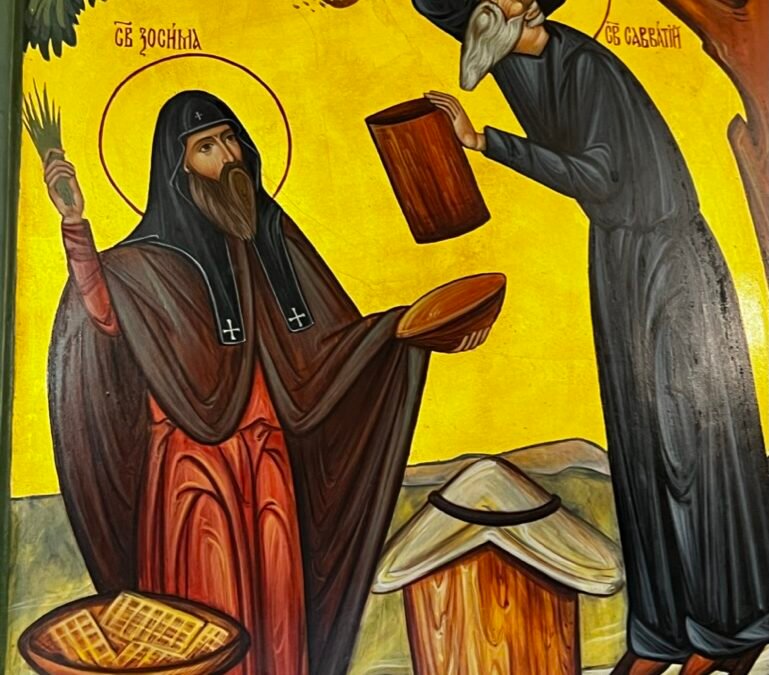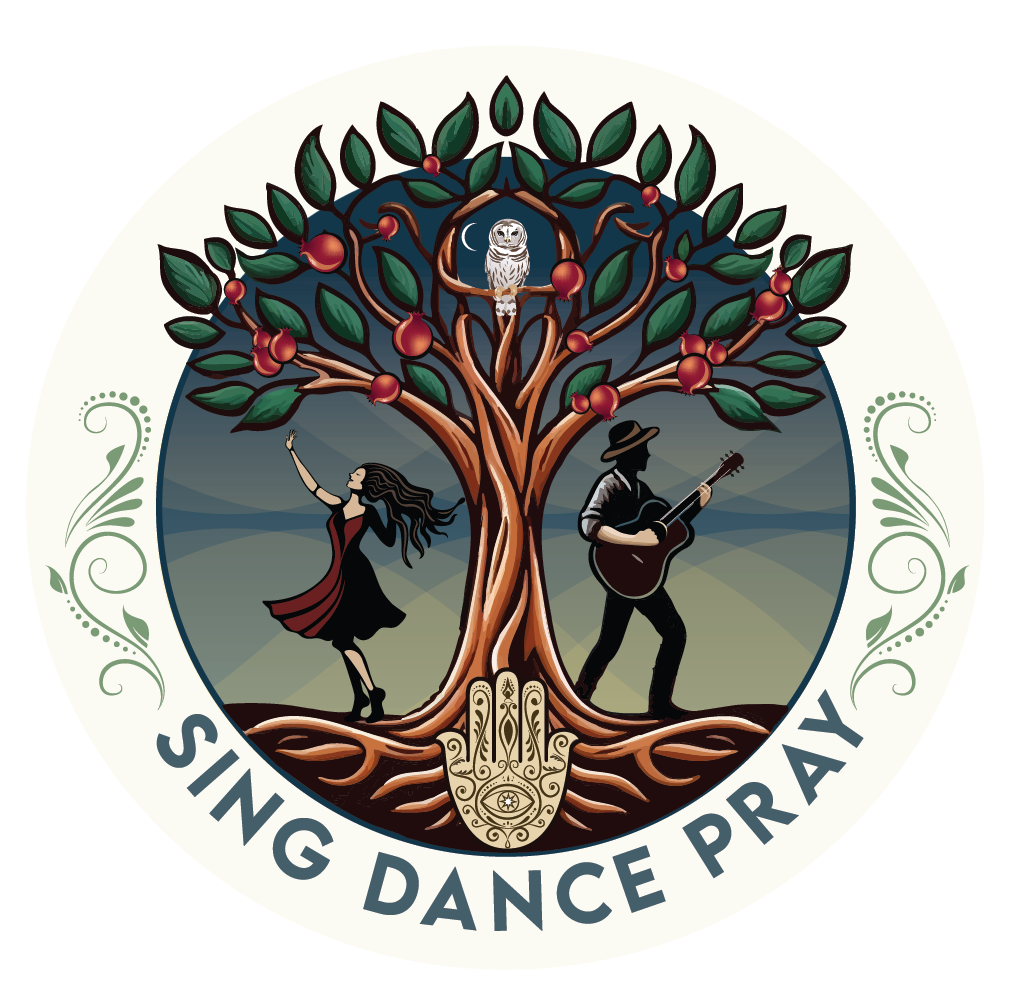Poland Pilgrimage #6
On the bus from Sejny to Warsaw. I can’t believe that this trip is coming to an end. I am very tired. And so grateful. And I can’t wait to see my guys, Stefan and Jonah James.
We have visited many places on this trip. Traveling much of the length of Poland over the last 14 days. We just stopped for a ritual break in the town of Szycjuczyn, the ancestral town of one of the men in our group. His intention being there with us was to honor his grandfather who left Szycjuczyn as the initiator of his family’s immigration to the United States.
Grandpa Meyer had a long journey across the lands of Poland and Germany to the port of Bremen in the early 1900’s, and then a journey across the Atlantic ocean by ship to New York, and then on to Detroit where he started a wholesale produce company. There he met his wife Fayge Rivkah who was from a village in Poland not far from Szycjuczyn.
We circled up in the grassy town square and lit a soul candle in the middle as Rob shared his grandparent’s story. We each lifted up and blessed the names of our ancestors who had also made that journey across the ocean. It is because of their courage and resilience that we are alive.
Now we are back on the bus and I’m catching up on my writing. When last I wrote to you I was leaving Warsaw.
On our last morning in Warsaw we were joined by the Amazing Julie Weitz https://www.julieweitz.com/bio-cv and Danya Voskoboynik. These two souls are dynamic artists and educators who I encourage you to get to know. Their mission is to create embodied, collective experiences for repair by unearthing the wounds and resilience of diasporic culture.
As my wise co facilitator Julie Wolk says, “I think when things are this multilayered and complicated (to put it mildly) art is essential to make sense of it, process it, and move toward change.”
And so, with Jules and Danya as our guides, that’s what we did. Still waiting for the coffee to kick in, we dropped right into the deep end, riding from Warsaw on a bus to Treblinka death camp in silence, journaling, meditating, and weeping.
The lush countryside rolled by out the window as we sat with rich source sheets from Jules and Danya and a curated yiddish music playlist. Poems poured into my journal as the ancestors of the place grieved and spoke through me.
I’m going to skip sharing about that afternoon at Treblinka as I am still processing and integrating so much of that. But I’ll just say that it was profound. Words fail. I spread my shawl on the ground and lay on my back watching clouds roll overhead and listening to birds sing. I dedicated the gentleness of this experience to all souls who had come to this place and never had the opportunity to experience a moment of peace.
After box lunches and a sharing circle in council, we climbed aboard the bus and rolled on to the countryside town of Miljecicje.
We checked into the Rousseau retreat center that smelled of fireplace smoke and cold old wood. After a dinner at the Dwor Bartinka restaurant (known for its award winning honey production and with gardens full of lilies taller than me) we returned to the Rousseau’s grassy lawn to engage in Jules’ workshop called: Excorcising Your Inner Dybbuk.
“The Dybbuk” is a Yiddish play by S. Ansky that was made into a film in 1937. It is available on You Tube, check it out! A Dybbuk (from the Hebrew word meaning to cleave) is a soul who attaches to a living person in order to complete some unfinished business here on earth.
With all of the death we’ve been dancing with here in Poland it felt amazing to look at Yudith Berg’s choreography and black and white photographs of Yiddish theater characters in dramatic poses, and to play with it together.
Dance is one of my favorite modes of release, and for our group to dance together on this heavy day, was so powerful. Day blended into twilight as we twirled and moved on the grass sending any Dybbuks clinging to us to dance among the stars.
The next morning we boarded the bus to the recently restored synagogue of Rabbi Aharon Shmuel Tamares. This synagogue was not destroyed during WW2 because the Germans used it as a storehouse for weapons and ammunition as well as stables for their horses. However, it had fallen into total disrepair during the communist era and now has been completely renovated by another incredibly committed “memory keeper”, Monika.
Monika taught us that Rabbi Tamares was a passionate pacifist who taught and wrote of the rejection of war and violence. From a young age, Tamares was sharply critical of the glamorization of violence and militarism. Tamares argued that the long “Galut”, or Jewish exile and dispersion to the diaspora, had a necessary spiritually rectifying effect on the Jewish People. The Medieval and Modern worlds had created spiritual hardships of war and nationalism. The Jews, oppressed and without a nation state of their own, (though often forced into conscription), saw a need for universal social justice and peace. Jews, he argued, had a greater freedom in statelessness to maintain their moral compass and reject corrupting influence.
Tamares distinguishes between two kinds of evil. The first of these is a natural inclination, a “yetzer ha ra” or “insinctual urge,” to do violence in a moment of passion, knowing it is wrong.
Another, more insidious evil, comes from the corrupting influence of a corrupt militaristic society. When one is engaged in the latter, not only is one more likely to commit immoral acts, they will be unable to see that such acts are immoral. Such evil, Tamares says, “walks upright in the streets of the city and struts about without meeting any opposition.”
After a workshop creating our individual “tree of life” with pens and pastels we came together to create a communal tree of life on a giant piece of paper. Then we walked into the woods to study in chevruta with trees that might have know this self titled “Sensitive Rabbi”.
After some lunch we were guided to the old Jewish cemetery. Miljecice was destroyed by the German army during WW2 and the matzevot/tombstones were used to pave military roads and build stables. During the 1950’s the “roads” were then paved over with asphalt. When road repairs were done in the 1960’s the asphalt was removed and the matzevot were uncovered. Residents of the town who were poor and needy, collected them to use as building materials. In the past 15 years, Monika has made it her mission to collect and reclaim them and restore them to the cemetery.
When we arrived at the cemetery it appeared as an overgrown grassy field. Across the road we met Gina, a 95 year old Polish woman with memories of life before WW2. From her wheelchair at the end of her driveway, her white hair covered with a colorful scarf, she spoke of Bluma, a Jewish girl who was sent to Treblinka. Bluma was her best friend when she was 12 years old. “She was so pretty, so pretty..” she said. Gina’s own mother and sister were killed in the bombing of Miljecice and she was orphaned. War is a crime.
When we passed through the cemetery gate we found a large broken tombstone on the earth right in front of the gate. Monika told us that someone had recently found it on their property and had returned it but had not been able to carry it all the way through the cemetery to the memorial wall at the back.
She asked us if we could help to move it!
Our crew jumped into action eager to take turns rolling it end over end all the way across the wild grasses to the small memorial wall at the back of the cemetery where the recovered stones leaned.
We sang strong niggunim/wordless melodies and cheered each other on through this mitzvah until the stone was safely leaned against the wall. There we lit a soul candle and I lifted up prayers for the soul whose stone we had restored and for Rabbi Tamares’ soul. His grave is somewhere in that cemetery but no one knows where, it’s now covered with a blanket of moss, wild strawberries, and thick grasses. I asked the soul of this sensitive Rabbi to bless the people of the world with greater sensitivity to each other’s humanity. I called upon this ancestor to help us learn to “study war no more”. We lifted his soul up on its celestial journey with gratitude and blessings.
Study war no more. I’ll leave it there. I know it may be difficult to imagine, but we must try. Don’t give up on making peace within yourself as a practice every day so that the world may know it!
You may say I’m a dreamer, but I’m not the only one.

